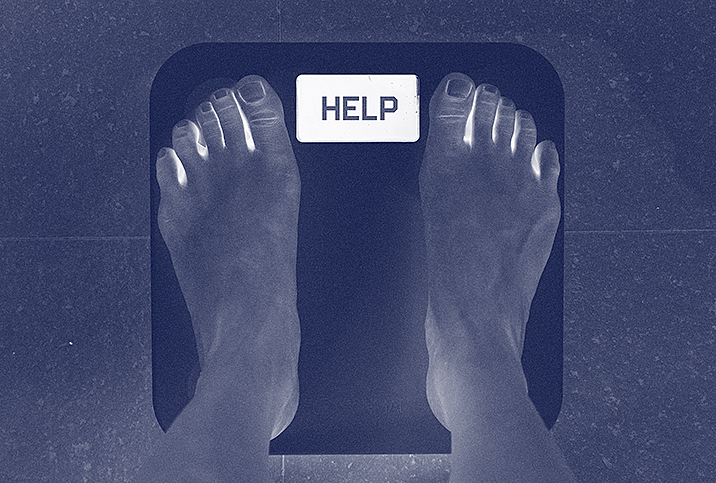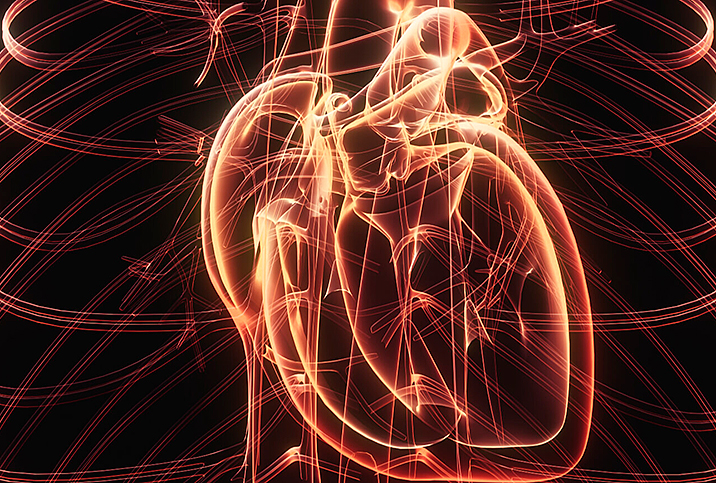The Effects of Eating Disorders on the Heart

Eating disorders are the result of serious psychological issues that present as an excessive focus on body weight and shape, and thus affect the way someone consumes food, leading to the development of extreme eating habits. Most notably, people with eating disorders are associated with binge eating, purging by self-induced vomiting, restrictive dieting and extreme exercising.
These behaviors make it difficult for the body to get the nutrients it needs, but more than that, eating disorders can also lead to a wide variety of mental and physical complications, including problems with the heart, bones, digestive system, teeth and mouth. Left untreated, a severe eating disorder may even cause death.
According to recent surveys, more than 20 million women and 10 million men in the United States will have an eating disorder at some time in their life.
It's not known exactly what triggers an eating disorder, but it is widely believed to result from a combination of psychological, biological and societal pressures and influences on a person. There is no particular demographic—race, religion, age, gender, sexual orientation, body shape or weight—associated with eating disorders.
Seeking treatment for an eating disorder can help an individual cope with it and develop healthier eating habits. In some cases, recovery can reverse any health complications a disorder has caused, but this depends on how long the individual ignored it. Like so many conditions, early recognition and treatment of an eating disorder provide the best outcomes.
How eating disorders affect the heart
Every eating disorder brings its own set of symptoms and potential health complications. The three most common eating disorders are anorexia nervosa, bulimia nervosa and binge-eating disorder.
Anorexia nervosa
This condition is characterized by an abnormally low body weight, a distorted perception of weight or shape, and an intense fear of gaining weight. According to the Mayo Clinic, individuals with anorexia nervosa may limit calorie intake drastically, carry out daily routines of excessive exercise, vomit after eating, and use diet aids such as laxatives to flush their body.
Health complications occur when individuals with anorexia nervosa who are already severely underweight continue to go to extreme lengths to keep losing weight. According to medical experts at Northwestern Medicine, heart damage is the most common reason for hospitalization among people with anorexia nervosa, and eating disorders in general.
When a person with anorexia nervosa undergoes intense weight loss, the body no longer gets enough nutrients to function and starts to slow down to conserve energy. This can cause the heart to become smaller and weaker, leading to inadequate blood circulation and, in some cases, heart failure and even death.
Bulimia nervosa
Similar to how heart complications are a long-term effect of anorexia nervosa, people with bulimia nervosa face the same risk. Bulimia nervosa sufferers go through continuous cycles of binge eating followed by some compensatory behavior to prevent weight gain. These behaviors can include self-induced vomiting, laxative abuse and more. It's important to note that unlike anorexia nervosa, individuals with bulimia nervosa tend to have body weight that is within the "normal" body mass index (BMI) range.
Over time, bulimia nervosa can lead to heart function problems. It's important to note, with both anorexia nervosa and bulimia nervosa, that the pressure caused by repeated vomiting can also cause heart complications.
Binge eating disorder
When a person regularly eats too much food and feels like they're not in control of their eating habits, they're in the throes of binge eating disorder. Bingeing episodes are often followed by feelings of shame and embarrassment; however, unlike anorexia nervosa and bulimia nervosa, binge eating disorder does not involve purging.
Individuals with binge eating disorder may be of normal weight, overweight or even obese. In cases in which an individual with binge eating disorder becomes overweight or obese, heart problems may arise due to the increased strain of carrying out regular daily tasks.
How to reach out for help
The best way to avoid major health complications is to seek professional help right away. If you're struggling with an eating disorder, don’t hesitate to lean on your support group and consult with a medical and mental health professional.
You can also contact the helpline of the National Eating Disorders Association for support, resources and treatment options for you or a loved one by calling or texting 800-931-2237.


















